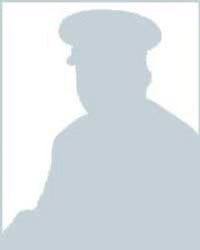Captain Charles Avison Parker

Captain Charles Avison Parker (1879-1965), naval officer, was born on 17 May 1879 at Gloucester, England, third son of Canon Charles Joseph Parker and his wife Susanna, née Scott. After schooling at Cheltenham College, he entered the RN as an assistant clerk on 15 January 1897. His first commission was in HMS Orlando and then other vessels of the Australian Squadron; after time in a boys' training ship, he went to the Channel Squadron and spent four years on the China Station. While with the Mediterranean Fleet, in 1907-08 he contracted pulmonary tuberculosis and was retired, physically unfit, on 1 November 1913. Believing his impaired health would benefit from outdoor life in Australia he migrated to Victoria and bought a citrus farm at Lockington.
Volunteering for the RAN on the outbreak of World War I and assessed medically fit, Parker was appointed a Staff Paymaster on 21 August 1914. He joined HMS Orvieto, flagship of the convoy taking the Australian Imperial Force to Egypt, as Secretary to the Naval Transport Officer.
Reporting to the Australian High Commission, London, Parker worked as an assistant to HGB Larkin, Head of the Transport Branch instituted in January 1915 as the London shipping agency of the Commonwealth Government. He applied himself diligently to the duties associated with the reception of Australian ships in the United Kingdom, including their berthing in the congested British ports, disembarkation of troops and discharge and disposal of cargoes.
His earlier RN experience significantly facilitated his dealings with the Imperial government which, as the war progressed, competed with the Commonwealth for available shipping. Parker's tireless liaison with the Admiralty, combined with the determined efforts of the AIF Director of Medical Services, Major General (Sir) Neville Howse, ensured that this competition impeded as little as possible the repatriation of AIF casualties. Promoted Fleet Paymaster on 27 April 1918, he remained in London until January 1920, assisting with demobilisation. Larkin reported to the Prime Minister that Parker's work had been 'of inestimable service to the Commonwealth'.
On his return to Australia Parker was made Assistant Secretary for Personnel and later, Naval Assistant to the Second Naval Member (for personnel duties) at Navy Office, Melbourne. Although his pulmonary lesion had healed, he was afflicted with bronchial complaints for the rest of his life and his lowered medical grading debarred him from seagoing postings: he was transferred to the auxiliary service list in December 1922. He remained at Navy Office until 1946 as a trusted adviser to a succession of Naval Boards and his extended time in essentially the one post was of immense benefit to the Navy. In a field where precedent and continuity of policy were all-important 'Cappy' Parker became renowned for his encyclopaedic grasp of administrative details and the financial ramifications of personnel matters. Adept at parrying the attempts of Treasury officials to pare naval expenditure, he was considered by them 'too shrewd', and unsuccessful attempts were made to debar him from preparing naval submissions. He was appointed CBE in 1943.
Parker's influence was seen in all inquiries into pay and personnel matters of any importance. Perhaps his only serious misjudgment was his persistent advocacy of fee-paying cadets as a partial solution to the chronic under-funding of the RANC in the 1920s and early 1930s. Promotion in the auxiliary service was slow; he did not gain acting captain rank until April 1940. Placed on the retired list in January 1941, he was retained on temporary duty for the duration of World War II and was discharged in June 1946.
After retirement he continued to attend Navy Office as Secretary of the RAN Relief Trust Fund and was still being consulted by senior officers in his ninth decade. Parker was described by a senior colleague as 'tall, fresh-complexioned...[the] warm bell-like modulations of his voice expressed his abiding interest in people...remembered affectionately as the embodiment of RAN personnel administration'.
He had married Mary Style in London on 14 April 1915. Three of their four sons became professional service officers: Anthony, a RAAF Test Pilot; Peter, an Air Commodore, RAAF; Michael, a Commander RN, Secretary to the Duke of Edinburgh and equerry-in-waiting to the Queen.
Parker was a member of the Naval and Military Club, Melbourne, an enthusiastic producer and actor in plays and musicals and a keen gardener. He had adopted his wife's Catholic faith and in later life was a daily communicant. He died on 14 June 1965 and was buried in Boroondara cemetery, Kew. Three sons and twin daughters survived him.
Denis Fairfax


